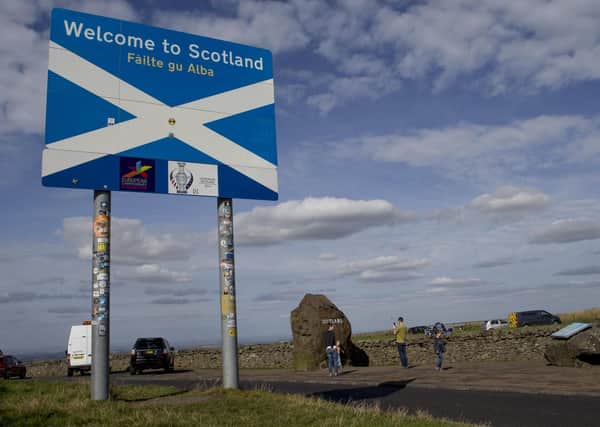The constitutional election con trick


In reality, independence is precisely what this election is about, because the one certainty is that if the Separatists win, they will immediately set the wheels rolling towards another referendum, Holyrood will readily grant it, and we’ll find ourselves enduring once again what we were told a mere seven years ago would be a ‘once in a lifetime’ ordeal. We had better come to terms with the fact that, once launched, such a referendum will completely take over our national life. There are but two areas of doubt. The first is whether the Separatists will proceed at Nicola’s pace (cautiously) or at Alex’s pace (headlong); the second is how Westminster will react.
On the face of things, there can be no referendum without the consent of the United Kingdom Parliament, but although we have a Prime Minister who thinks he can walk on both water and broken glass at the same time, he is likely to find it impossible to resist what will be presented as ‘the will of the Scottish people.’ That ‘will’ will not be supported by any compelling argument. There is no rational argument for independence, but nowadays that scarcely matters. Rational argument is no longer the democratic way. Instead, the right to protest is the new cornerstone of democracy, and constitutional niceties will offer but a poor defence against the united (or semi-united) forces of Nicola Sturgeon, Alex Salmond and Patrick Harvie. Boris might resist argument; he will find it hard to resist intimidation, especially an intimidation acting in the name of a lawful parliament.
Advertisement
Hide AdAdvertisement
Hide AdMuch better if the Scottish electorate were led to realise here and now that the current election is itself a referendum, and denied the Separatists the majority they need to get their Bill (already drafted, you may be sure) through the Holyrood Parliament.
Independence is a hollow promise. Independence from whom? We certainly have no reason to believe that Edinburgh will govern with a lighter touch than London. It paid little attention to local views when replacing the ‘Isle of Lewis’ on the Ullapool-Stornoway route, and it has shown no commitment whatever to the idea of subsidiarity (devolving decisions on local issues to local bodies). Instead, in the classic fashion of Margaret Thatcher and the Tudors, the SNP government has both pursued and encouraged a clear policy of control from the centre. Local councils no longer manage their own Police Forces or Fire Services, and if we don’t watch, education will go the same way, leading to a uniformity that takes no account of local religion or culture. CalMac has been effectively nationalised, Scotrail is soon to follow, Stornoway has lost its air-traffic control facility, and the call-centres for life-line services have been moved to urban outposts far removed from Tolsta Chaolais and the Clisham.
Let it be known, too, that we are already living in an independent country: citizens of that Great Britain which valiantly defended its independence in the face of the might and malice of Napoleon Bonaparte, Kaiser Wilhelm and Adolf Hitler. But even in these dark days, when Niseach and Geordie were comrades in arms, we were protected by more than the valour of Britain’s armed forces. We were protected by the waters around our shores: waters which defined us as one people inhabiting one set of islands on which we shared a common space, spoke a common language and were inspired by a common history. And together, as Scots, Welsh, Irish and English, we developed a welfare s tate which gave a s tate p ension to old crofters who could hardly believe it, and a National Health Service which has won universal admiration.
It is time, too, for separatists to come clean on the scale of disruption and uncertainty that will follow independence. The most obvious of these is the question of the Border. What about b order controls? How long will it take to negotiate a free-trade agreement with England? Will there be passport controls, as on the Canadian-US border? Will there be more checks and paper-work on seafood travelling from Leverburgh or Castle bay to continental markets? Will Scotland and England have different laws on immigration, abortion, or licensing? What about food standards, or the cost of setting up new Ministries of Defence and Social Security, a new Foreign Office, and a successor to HMRC? And are we sure that the appointment of a new Head of State will pose no problems? Patrick Harvie will certainly not support the continuation of the monarchy.
Advertisement
Hide AdAdvertisement
Hide AdIn sum, independence is not a point, but a line, and a very, very long one, leading we know not where, except that we have no reason to believe that, if the Nationalists are put in charge of an independent administration, they will run it any better than they have run a devolved one? Will they go on a crash-course on building ferries? Or children’s hospitals? Will they set out to protect women’s spaces from men who make the absurd claim that they are women in men’s bodies? Will they re-examine their broken and discredited policy on drug-abuse? Will they recognise that behind racial unrest there lies not colour, but poverty, and squalid and degrading housing?
Devolution has given us a constitutional framework which allows us to tackle, independently, all these issues. Get real. Get on with it.